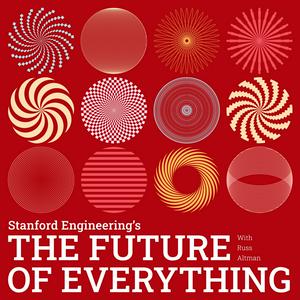We've been thinking a lot about culture recently, and reflecting on how–whether or not we’re aware of it–culture is a force that’s always exerting influence on us. It’s typically only when we get outside of our daily routine, our city or even our country, and are confronted with new ways of doing things that we can clearly see the values, norms, and practices that make up the culture we live in. Today, we’re re-running a thought-provoking conversation we had with Michele Gelfand about notions of what she calls “tight” and “loose” cultures. It’s a conversation that helps illuminate some of the invisible forces of culture, and also sheds light on how understanding these forces helps us better navigate the world. We hope you’ll take another listen and enjoy. Have a question for Russ? Send it our way in writing or via voice memo, and it might be featured on an upcoming episode. Please introduce yourself, let us know where you're listening from, and share your quest. You can send questions to
[email protected] Reference Links:Stanford Profile: Michele Gelfand Mindset QuizConnect With Us:Episode Transcripts >>> The Future of Everything WebsiteConnect with Russ >>> Threads / Bluesky / MastodonConnect with School of Engineering >>> Twitter/X / Instagram / LinkedIn / FacebookChapters:(00:00:00) IntroductionRuss Altman introduces Michele Gelfand, a professor of psychology and business studies at Stanford University.(00:02:22) What is Culture?Defining culture as a set of norms, values, and beliefs.(00:03:36) The Tight-Loose ContinuumTight versus loose cultures and their enforcement of social norms.(00:06:20) Individual vs Societal Tight-LooseThe differences in tight-loose orientation across individuals and nations.(00:08:25) Tight-Loose Across Societal LevelsHow history, ecology, and mobility shape cultural tightness or looseness.(00:11:25) Cultural Intelligence (CQ)The role of cultural intelligence in negotiations and leadership.(00:16:21) Tight-Loose in Personal & Professional LifeNegotiating cultural differences in relationships and organizations.(00:19:53) Cultural Evolutionary MismatchCultural responses to crises and the influence of perceived vs. real threats.(00:23:45) Tight-Loose Differences in BusinessCultural differences in mergers, acquisitions, and financial performance.(00:25:58) Improving Cultural IntelligenceWhether individuals can improve their CQ through practice and exposure.(00:28:37) Tight-Loose in PoliticsThe growing tight-loose divide in political and social issues.(00:31:09) Conclusion
Connect With Us:Episode Transcripts >>> The Future of Everything WebsiteConnect with Russ >>> Threads / Bluesky / MastodonConnect with School of Engineering >>>Twitter/X / Instagram / LinkedIn / Facebook

